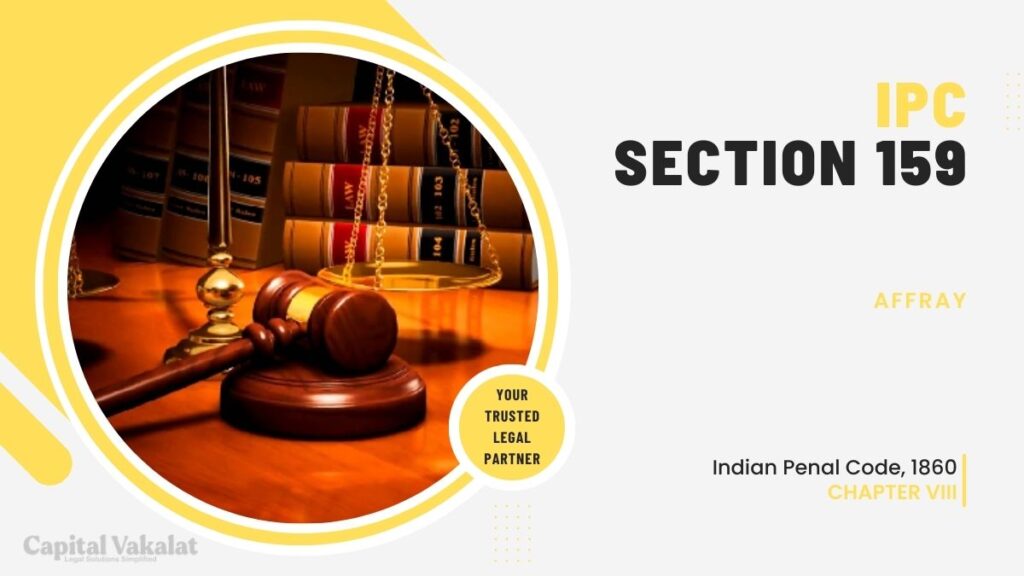In the realm of criminal law, understanding the nuances of specific legal sections is crucial. One such provision is Section 159 IPC: Affray. This article delves deep into this legal provision, providing a comprehensive understanding of its intricacies, implications, and real-world applications.

Whether you’re a law student, legal professional, or someone interested in the law, this article will help demystify Section 159 IPC: Affray.
Unpacking Section 159 IPC: Affray
Section 159 IPC, also known as the Indian Penal Code, deals with the offense of Affray. This section pertains to public fights, brawls, or altercations that disturb the peace and tranquility of society. Here, we’ll break down the key elements of this legal provision.
What Is Section 159 IPC: Affray?
Section 159 IPC: Affray deals with situations where two or more people engage in a public fight, disturbing the public peace. It is important to note that the fight must occur in a public place or near it.
Understanding the Key Elements
To better grasp Section 159 IPC: Affray, it’s essential to understand its key elements:
- Public Place: The fight must take place in a public area or a location that affects the peace and order of the public.
- Mutual Combat: For an act to qualify as an affray, it must involve mutual combat. In other words, both parties willingly participate in the fight.
- Disturbance of Public Peace: The act of fighting should disrupt public peace, causing fear and concern among the public.
Real-World Scenarios
To shed light on the practical application of Section 159 IPC: Affray, let’s consider some real-world scenarios:
- Street Brawl: A brawl between two groups of individuals in a busy market area.
- Altercation in a Park: A heated argument escalating into a physical fight in a public park.
- Bar Fight: A fight breaking out in a crowded bar.
Understanding these scenarios helps us realize the broad scope of Section 159 IPC: Affray.
Penalties and Consequences
Now, let’s delve into the penalties and consequences associated with this legal provision. Affray is a non-cognizable offense in India, which means that the police cannot arrest someone without a warrant for this offense. However, it is a bailable offense, and individuals involved in an affray can be released on bail.
Conclusion
In conclusion, Section 159 IPC: Affray is a legal provision aimed at maintaining public peace and order. It deals with situations where individuals engage in mutual combat in a public place, causing disturbance. Understanding the key elements, penalties, and real-world scenarios related to this provision is essential for legal professionals and anyone interested in criminal law.
By shedding light on Section 159 IPC: Affray, this article aims to provide valuable insights and knowledge, ensuring a better understanding of this legal provision. So, stay informed, follow the law, and contribute to a peaceful society.
Frequently Asked Questions
Can an individual be charged with Affray for defending themselves in a fight?
No, Affray charges are typically not applicable to individuals defending themselves. This provision focuses on mutual combat that disturbs public peace.
Is Affray a serious offense in India?
Affray is considered a relatively minor offense in India, but it still carries legal consequences.
Can Affray charges be dropped if both parties agree to reconcile?
In some cases, if both parties involved in the affray agree to reconcile, it might influence the legal proceedings, but it ultimately depends on the discretion of the court.
Are there any defenses against Affray charges?
Defenses may include proving that the fight did not disturb public peace or that an individual was not willingly involved in the fight.
Is there a statute of limitations for Affray charges?
In India, there is no specific statute of limitations for Affray charges. Legal proceedings can be initiated when evidence is available.